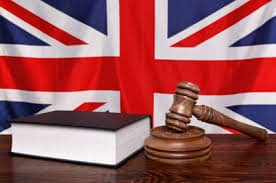Queen Elizabeth II Approves UK Gambling Licensing
 Her Royal Highness Queen Elizabeth II Approves UK Gambling Licensing and Advertising Bill
Her Royal Highness Queen Elizabeth II Approves UK Gambling Licensing and Advertising Bill
This week, the UK Gambling (Licensing and Advertising) Bill, a legislation that amends the Gambling Act of 2005 has been formally approved as law by Her Royal Highness Queen Elizabeth II.
The newly approved amendment bill grants the UK Gambling Commission (UKGC) the authority to regulate all remote gambling businesses operating in Great Britain; a stark contrast to the previous law in which only twenty percent (20 %) were under the regulatory authority of the Commission. The new law gives the UKGC the authority to institute and implement licensing and advertising policies and requirements that will increase consumer protection, when engaged in online gambling activities using the services and facilities offered and furnished by offshore-based remote gambling operators.
MP Helen Grant, who heads the Department for Culture, Media and Sport (DCMS) further stated that the new gambling licensing and advertising bill ensures robust and consistent regulation over all operators of Internet-based wagering facilities. She explained that the new law includes requiring the operators to give support to the government’s actions against illegal activity and corruption in sports betting.
The institution of greater protection measures include but are not limited to the following implementations:
- All operators, whether local or offshore-based, who make it their business to sell, provide or trade gambling products, services and facilities to UK-based consumers will have to obtain a gambling licence from the Gambling Commission, before they can lawfully transact business with UK-based consumers.
- As part of the UKGC’s licencing requirements, all operators will have to pay related regulatory costs as well as contribute to research, education and treatment programs aimed at minimising problem gambling harms that could potentially affect British punters; and to comply with all licencing conditions that protect children and adults deemed as vulnerable to the harms posed by gambling.
- Likewise, all operators will be required to provide information to the Gambling Commission about betting patterns deemed as suspicious, as a way of helping the government wage its battle against illegal activities and corrupt practices in sports betting.
Moreover and in line with the government’s intention to extend the horserace betting levy, all offshore betting operators will also be required to pay the betting levy that will be imposed by the government, as doing so will level the playing field for both local and offshore-based betting operators. That way, all bookmakers operating and offering horserace betting facilities and services in the UK will help and contribute in maintaining the quality and integrity of the horseracing industry, particularly the veterinary and breeding activities.
The Chairman of the UK Gambling Commission, Philip Graf is quite pleased that the new gambling law has received royal assent, since it is the final step in bringing at least eighty-five percent (85%) of the country’s remote gambling operators under the control and supervision of the Commission.
Accordingly, the new gambling licencing and advertising law places the regulatory body in a better position in carrying out initiatives aimed at protecting players who engage in all forms of commercial wagering. In having oversight authority and direct access over all operators of commercial wagering establishments, the head of Britain’s Gambling Commission believes that they are now far better placed not only with the matter of protecting players, but also in responding to and in advising the government about emerging issues pertaining to player protection and consumer risks.

















